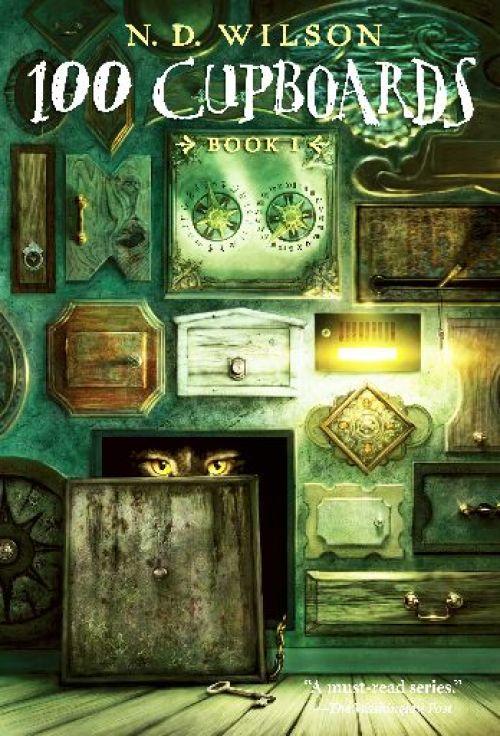 “They (the books) are scary, because the world is scary. This is a scary place. If you want to raise weaklings and who fold the first time they meet an obstacle then give them hero stories that never face a real obstacle… (instead) you want to read about people who are actually facing intense challenges and who are moving forward and stand where they stand because it is right; not because they might win.” N.D. Wilson in an interview with Above The Paygrade
“They (the books) are scary, because the world is scary. This is a scary place. If you want to raise weaklings and who fold the first time they meet an obstacle then give them hero stories that never face a real obstacle… (instead) you want to read about people who are actually facing intense challenges and who are moving forward and stand where they stand because it is right; not because they might win.” N.D. Wilson in an interview with Above The Paygrade
This is not Narnia. This is not even Middle Earth. This is something entirely different – but equally valid. Something quintessentially American.
In the interview with ATP, Wilson quipped his trademark line: “The world is Rated R; no one is checking IDs.” Knowing this, we can get a sense of why 100 Cupboards is a book that pushes the envelope of our comfort zone. It is absolutely wholesome but it is rooted in a boyish imagination which comes with real witches and real dangers. Like knight stories of old, there is blood, there is witchcraft, there are spectral events and there is a hero struggle to do what is right without guarantee of success.
You have probably heard the Chesterton quote that admonishes us to read fairy tales – not so that we can know that the dragon exists but so that we can know that it will be defeated. In 100 Cupboards, the witch is real. She claims lives violently (all off scene) and she is terrifying. But she can and will be defeated. Like St. George and the Dragon, however, it isn’t neat and tidy and it is deeply unsettling out of context.
There are many reviews on Amazon and other places condemning this book for a blood-drinking witch and a spectral ballroom scene that teases the paranormal. Some have called it a zombie apocalypse. Some conservative parents were very vocal about how offensive these images were and how objectionable they rendered the story.
I disagree. I have no stomach for vampires and ghosts. I won’t even read Northanger Abbey again because of the spookiness of it. There are entire episodes of Doctor Who that are prohibited in my home. But that is not exactly what is happening in this story. This story is much better than that.
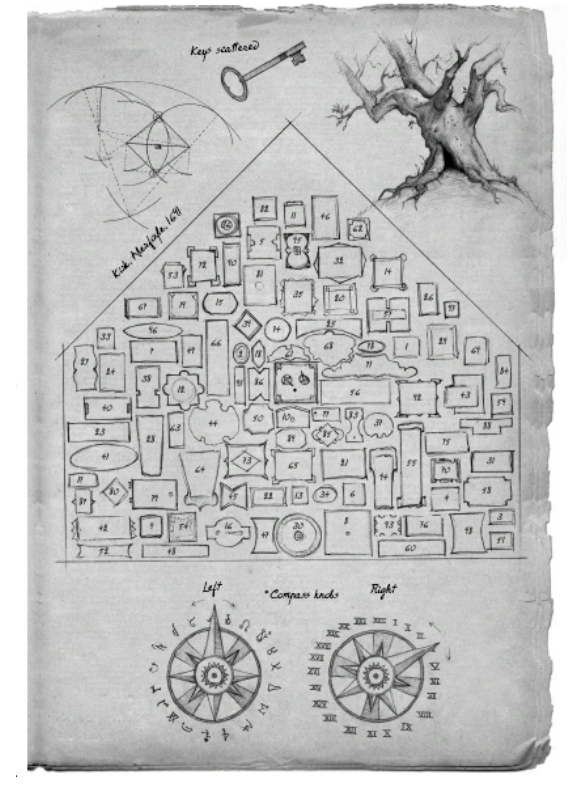 “Stories are soul food. Stories are catechisms. Catechisms for the imagination. Catechisms for loyalty. Catechisms to shape the character you want to be yourself.” (APG interview)
“Stories are soul food. Stories are catechisms. Catechisms for the imagination. Catechisms for loyalty. Catechisms to shape the character you want to be yourself.” (APG interview)
In 100 Cupboards we meet a boy who has just moved from a bubble-wrapped existence to the family farm in Kansas. Henry moves in with his aunt, uncle, and girl cousins because his parents are missing. Leaving the progressive and dangerous overly protective existence of his former life, Henry is numb and unsure of his own value. The farm and family life urgently awakened in him a foggy sense of purpose and soul awareness.
It doesn’t take long for Henry to realize that real life is pretty spectacular. He begins to discover that not only does he have a body, but he has a boyish soul as well. As he begins to delight in the marvels of authentic life, the fantasy subplot kicks into gear. With his newly awakened health and happiness, Henry finds himself lost in a mystery that he (and his cousin) cannot resist.
75% of this book is rated PG. A modern American boy is taken from a stifled and rigorous life and is transplanted into an almost pastoral and marvelous reality of meaningful existence. His moral conscience comes on-line and his sense of wonder becomes a governing force in his choices. In these chapters, we have minor references to the grit of the boyish perspective – a clogged toilet, vomit, learning that boys urinate standing up, etc. None of it is graphic, illicit, or offensive. Just boy stuff.
When the fantasy element takes center stage, however, the book becomes challenging. It has a palpable darkness that can overwhelm more sensitive readers. I am personally of the opinion that we need books with this kind of darkness. Darkness is dark and we won’t know how to respond to it if we do not train ourselves to recognize it and choose against it.
The darkness, however, is so brilliantly written that it can be deeply unsettling to an untrained reader. For this reason, I recommend avoiding the audiobook. I had to turn my audio off and read with my eyes instead of my ears so that I could slow down the action and process it less intensely.
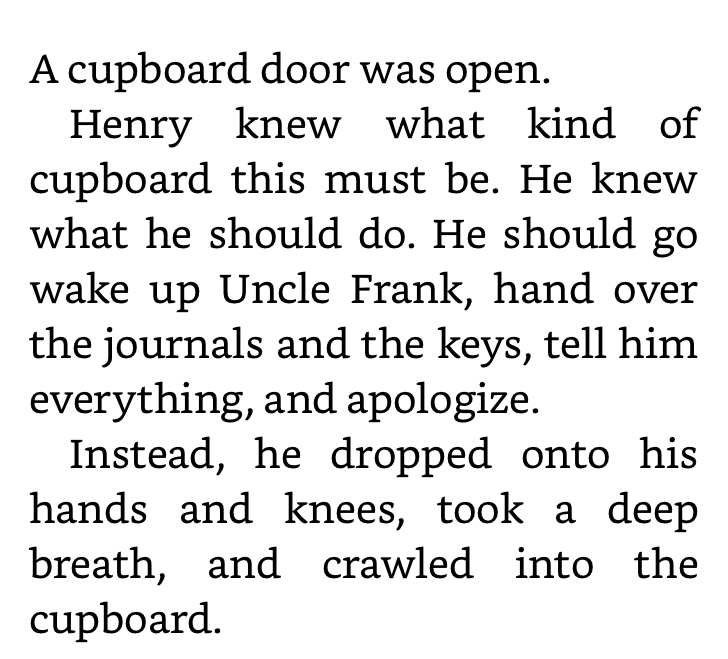
When the main characters go into the cupboards, they visit other worlds. This is fascinating. But, like all good fantasy stories, there are dangerous cupboards. Places where the evil has been trapped and visiting them can release the “dragon” from its cage. In this way, it is very much like The Magician’s Nephew.
If you have read TMN, then you may remember a scene in which the children enter a pool and visit a dead world. They enter a royal court that is in decay and populated by people who are frozen in time. This book follows that pattern pretty closely.
In 100 Cupboards, however, Wilson is not as gentle as Lewis was. Lewis suspended his characters in time and presented them as statues. In 100 Cupboards, the ballroom is trying to remember it’s past. The magic of that world works in such a way that the children can see and hear (to varying degrees) the scene just before the devastation. This is the spectral element. It is minorly unsettling because we just don’t read many ghost stories in our Christian culture today.
In that scene, a happy ball is taking place. Sadly, however, the sun sets and the Witch and her hounds arrive. The massacre is heard but not truly seen. The violence is just off-scene but very much in our awareness. The children frantically try to escape (and they themselves are safe) but their way is blocked, and they are forced to endure the knowledge of what is happening just beyond them.
When they do return to our world, the witch is here. She has escaped her cage, and in an earlier encounter, she has tasted the blood of Henry’s cut hand. For reasons that the story unpacks, Henry’s blood is royal and supernatural. The witch is not a vampire but she is a thief of life force. She is violent and straight out of Homer. Her bewitching appearance is of ravishing beauty but the reality is grotesque. She desperately needs to kill Henry and consume his blood because of the power it will give to her – not unlike Voldemort in Harry Potter. “She had no eyes. Where her eyes ought to have been were swollen sores, red against her white skin.” (p. 255)
We could (and should) talk to our children about how she could be a metaphor for how sin appears. In fact, this book is loaded with those kinds of good and wholesome questions and comparisons. Like Lewis and Tolkien, it is not allegorical, but it does draw upon standard symbols and forms.
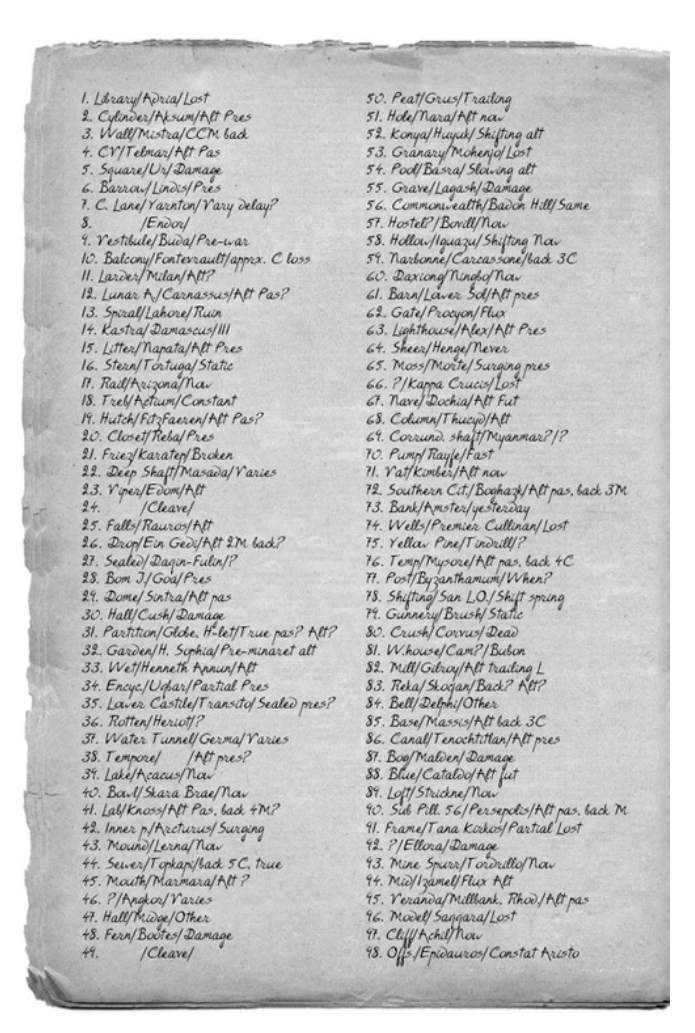
“If I can make kids excited to live in this world… that’s kind of my whole agenda… if I can heighten the imagination and gratitude for their own unique places in reality.” (APG interview)
Wilson is inviting his readers to appreciate the truth of the Bible. “I am crazy enough to believe the bible… this is this world… secular novelists don’t believe anything they are saying… I am trying to communicate the wonder and reality of this reality.” (APG interview)
In Wilson’s view of fantasy, the reader is invited to find Narnia in their closet and then return to our world and find Aslan in all of the beautiful things here too. The wars in Narnia, Middle Earth and the Cupboards prepare us for the spiritual wars which are here. Right now. In real life.
Henry is the boy next door; his cousin is the tomboy down the street. The other characters in this story are equally lovable and relatable. With varying levels of preparation, each character is called upon to make a stand against supernaturally powerful evil, probably at the cost of their lives.
This book is a bit of a Trojan Horse. It is published by a secular book house and it deals with elements that the tidy Christian novels never touch. This book is invading the secular world view with ancient and ever new Truth. It is very black-and-white (with some minor exceptions) and the right people win for the right reasons. Unlike modern secular novels, this one does not confuse its readers. This one clearly compels the reader to fall in love with Truth’s moral standard. This story has the power to awaken the moral conscience of any reader.
This book is excellent in audio at Audible. If you are looking for more ND Wilson, check out our review of Outlaws of Time.
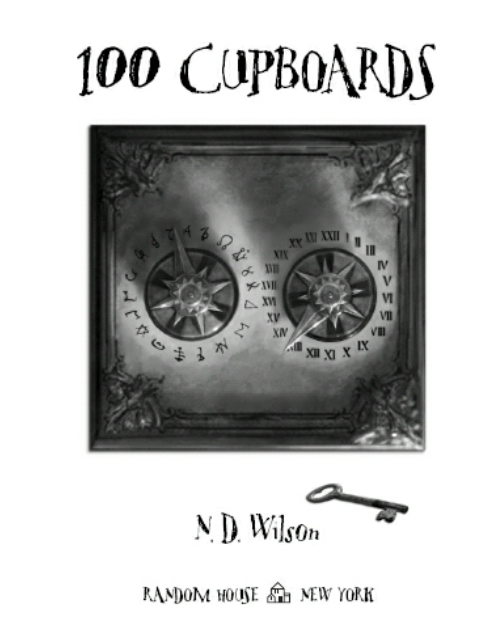
Great review! I hadn’t thought of the comparison with The Magician’s Nephew, but it works. I love this series (read it twice), but it’s not for the faint of heart. Only my oldest has been allowed to read it so far. Have you read his Ashtown Burials series? It’s actually much more intense than 100 Cupboards, but equally full of truth and goodness, good vs. evil.
Thank you Carolyn! This is my first experience with Wilson. I am really excited about the Ashtown Burials – I live in NE Wisconsin, so I thought that that would be particularly interesting! 🙂
I loved what you said about him on your Facebook page and kept hearing him recommended from trusted sources. As we have talked about him in Potato Peel Pie, I heard so much concern about those Amazon reviews. I just knew that I needed to read for myself and see if I could help others decided if/when/how to present it to their children.
Good review of a great series of books. I loved these so much! ND Wilson’s other books are fantastic as well.
Thank you! We are very excited about reading other ND Wilson books! Like we did with The Wingfeather Saga and will do with the sequels to the Green Ember, we plan to read and review whole series whenever possible. I can’t wait to finish the Cupboards series or read Outlaws of Time! -Sara
Thank you for this fabulous review! I’ve been intrigued by this book, but haven’t let my oldest read it yet. I listened to N.D. Wilson’s interview on Read Aloud Revival’s podcast and found your blog via that forum. Putting the book on hold at the library and am looking forward to reading and discussing it with my oldest.
I am so glad that this was helpful! I knew that this book has loads of potential but some areas of discernment too. Enjoy it! 🙂